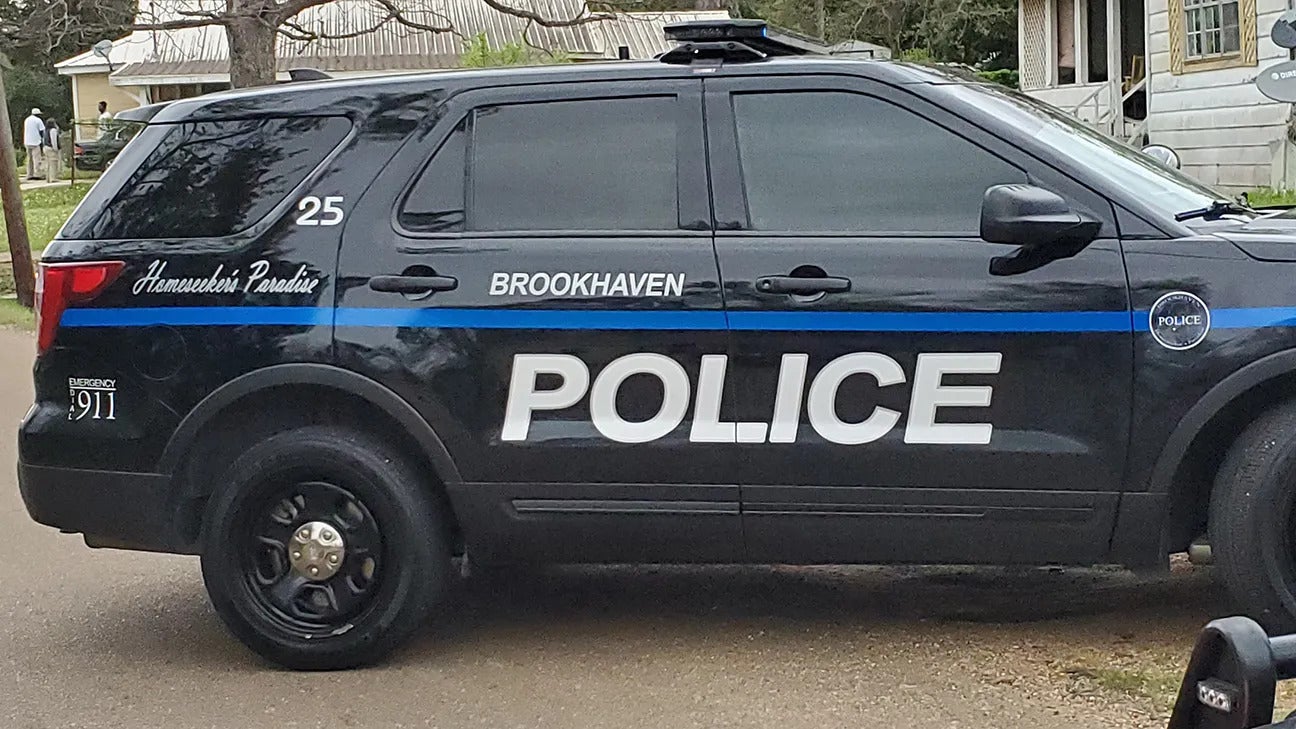LC Supervisors say no to medical marijuana
Published 12:38 pm Wednesday, March 30, 2022
https://jwp.io/s/Fo4pHR6r
During a special meeting Wednesday, Lincoln County supervisors heard from passionate supporters – one who lifted his voice in frustration – about “doing the will of the people” by opting in to the cultivation and processing, transportation and sale of medical marijuana.
But in the end, it was all for naught as four voted no to any of the options, with only District 4’s Eddie Brown voting for opting in on two: cultivation, and processing and transportation.
In November 2020, Mississippi voters overwhelmingly passed Initiative 65, agreeing to a state medical marijuana program. The result was somewhat surprising considering the muddled way the initiative was worded on the ballot. But even after an issue with the state Supreme Court that put everything on hold, the process kept moving along until presented to the governor.
When, on Feb. 2, Gov. Tate Reeves signed legislation legalizing medical cannabis, the new law promised that sufferers of certain disorders and diseases could treat their symptoms with “medical cannabis.” Those diseases include AIDS/HIV, ALS, Alzheimer’s disease, autism, cachexia or wasting syndrome, dementia, cancer, chronic pain, Crohn’s disease, hepatitis, Huntington’s disease, muscular dystrophy, Parkinson’s disease, post-traumatic stress disorder, sickle-cell anemia, seizures, severe or intractable nausea, severe and persistent muscle spasms, and ulcerative colitis.
However, many people are still muddled about an insinuation that they would be “legalizing dope use” if they opted for their city or county to opt in.
Lincoln County supervisors mentioned they don’t want recreational marijuana use to become a norm, and though they agree that medical patients needing pain relief should get it. However, most of the supervisors were dead set about keeping Lincoln County free of any legalized drug.
“I don’t want anything to do with it,” District 1’s Jerry Wilson said time and again at board meetings. “People tell me all the time that they aren’t even sure of what they voted on,” District 3’s Nolan Williamson.
District 5’s Doug Falvey said during Wednesday meeting that people tell him “all the time they didn’t know what they were voting for.”
The meeting started off with visable tension in the room, filled with medical marijuana supporters. Though only three people signed up to speak at the meeting, others appeared to want to speak anyway.
Supervisor Brown asked to suspend the rules in order to allow those in attendance to speak on the issue even if they didn’t sign up, but only District 1’s Jerry Wilson voted with him. The others voted against the measure, with Williamson asking why those in attendance didn’t sign up to speak as the other three had.
The first speaker was the same man who spoke to the board March 10, Jason McDonald, who plans to cultivate medical marijuana. Cultivators, who would have to grow into a contained area and ensure all documentation of their production is up to date, will be able to sell their crop to the highest bidder.
He said he’s “not afraid of a fight, but he’s not looking for one. He added that of the votes in the county – 66 percent of ballots cast were for medical marijuana, just like 70 percent was for alcohol.
“Y’all got elected on the same ballot,” he said as he eyed the supervisors. “That means 66 to 70 percent of the voters of this county approved alcohol and medical marijuana. Y’all are elected officials who are supposed to do what the people elect you to do – [fulfill] the will of the people.”
Wilson interrupted him to say “we [supervisors] are supposed to do what we think is right.” Someone from the audience said, “And who is to decide what is ‘right?’” Another answered, “the will of the people who voted is what is right.”
McDonald answered with what he called “an olive branch of peace,” asking board members to at least approve opting in to cultivation and transportation for Lincoln County. Not doing so “is just a costly and inevitable path to an election for something the public already voted on,” he said.
Voters in communities that opted out can trigger a special election by gathering signatures by petition from either 1,500 registered voters or 20 percent of the population. The county would then have to pay for all that an election entails.
McDonald added that a group of supporters stood ready to get start on petition signatures and that they were collecting funds to run their own candidates against the sitting board members.
The mood changed instantly, with Wilson saying “I take that as a threat.” District 2’s Jerry McGehee agreed with a “me, too” to McDonald’s comments.
McDonald’s voice raised as he again told supervisors that the “people voted and the will of the people” is what is at stake. County Attorney Will Allen broke in, asking for respectfulness and calmness from all parties. Sheriff Steve Rushing also entered the room to stand ready, though peace was restored.
Linda Roberts Williams told supervisors as a retired nurse, she’d seen the pain many patients go through. “My own sister is dying of lung cancer,” she said. “Someone left a joint in my mailbox and I gave it to my sister. And that little [amount of] marijuana eased her pain for a day and a half [afterward].
“Bring Mississippi out of the Dark Ages,” she said, adding that a positive point about opting in is that keeping county control over dispensing keeps formal pharmacies out of the loop, because “if pharmacies get involved, medical marijuana will be too expensive for those who need it.”
Johnathan Brown – originally from Hattiesburg, but with family in Summit – is an Iraq veteran, having served with the Air Force as an intelligence agent. He told supervisors medical marijuana helped him with his post traumatic syndrome disorder. “God used this plant to save my life.” He quoted Psalms 104:14, which says: “He causeth the grass to grow for the cattle, and herb for the service of man: that he may bring forth food out of the earth,” as an example of how medical marijuana could be used for good, “and not evil.”
He was quiet as he spoke. “I would hope you would not make a rash decision,” he said. “This bill is for the patients. There are regulations available and in place to ease your concerns.” He furthered offered his support for the activists for the measure and thanked the board for listening.
Allen then explained how supervisors could vote individually on cultivation and processing, transportation and sales. Or they could opt out on all.
Brown motioned first to opt in for cultivation and processing and transportation, but the other supervisors kept their heads down and let the motion die. Williamson then motioned to opt out of everything, and all the supervisors but Brown voted yes and the motion passed.
Lincoln County is not the first to want to distance itself from the medical marijuana subject. A Tupelo newspaper reported March 23 that “just 13 days after it was signed into law by Gov. Tate Reeves, Tippah County Board of Supervisors voted unanimously to opt out.” Pass Christian, Ridgeland, Gluckstadt and Brandon have opted out. However, Walthall County opted in.
Legal site jdsupra.com explained that “if an opt-out decision is made, [once the petition process is completed,] the election must be held within 60 days from the date the petition is filed, but no sooner than 15 days from the publication date of the first of three required newspaper notices of the petition filing and upcoming special election.
“The opt-out decision can be overcome by a majority vote of the qualified electors. Once an election is held, no matter the outcome, no subsequent election can occur sooner than two years from the date of the first election.”
Brown said he was disappointed with the outcome. “I mean, we’re voting for medical use,” he said. “None of us [are] doctors – we are voting on medical stuff. We need to have an open mind because none of us have a degree in this.
“I’m for it because I have people I know who are suffering from cancer. They are suffering.”
Medical marijuana supporters gathered outside the board room once the vote was over. They were busy signing papers and talking among themselves.
They seemed organized and ready to take the next step.
“We’ll see how this petition goes,” Brown said as he got ready to leave the government complex.
“It’s up to them.”




